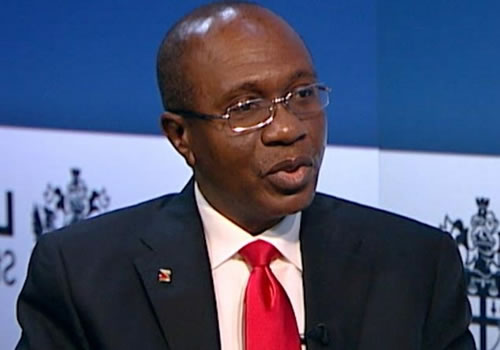
In a deft move last week, the Central Bank of Nigeria (CBN) ambushed the perpetrators of forex fraud in Nigeria and their cohorts abroad, by directing banks and other authorized dealers to henceforth stop opening ‘Form M’ whose payment is routed through a buying company, agent, or other third parties.
Form M is the mandatory statutory document that must be completed by all importers for the importation of goods into Nigeria. The importer must compulsorily complete and register Form ‘M’ with banks or authorized dealers at the time of placing orders.
In addition to the directive on ‘Form M’, the apex bank announced the introduction of a product price verification mechanism which will help prevent overpricing or mispricing of imported goods and services. “All authorised dealers shall use this mechanism to verify quoted prices before Forms ‘M’ are approved,” the CBN sternly directed.
The CBN took the measures in a circular titled: “Destination Payment for All Forms M, Letter of Credit and Other Forms of Payment,” dated August 24, 2020.
This action, the apex bank said, was part of its continued efforts to ensure prudent use of the scarce foreign exchange resources and eliminate incidences of over-invoicing, transfer pricing, double handling charges and avoidable costs that are ultimately passed to the average Nigerian consumers.
No doubt, this directive by the CBN must have hit the perpetrators of over-invoicing, mispricing, transfer pricing and other related forex frauds with the impact of a sledgehammer. No wonder many financial experts have described the apex bank’s action as a ‘coup’ against forex fraudsters.
Indeed, financial experts and analysts were quick to hail the CBN action, which they described as a ‘policy coup’ against these bugs in the blood of the nation’s economy. One of the experts who praised the CBN for the measures was the Chairman of United Bank for Africa (UBA), Tony Elumelu, who said bolder and more cohesive measures like these would make the difference in the spirited efforts to revive the nation’s ailing economy.
It is believed that if the CBN succeeds with this bold move, the era of looting the nation’s foreign exchange and dissipating her foreign reserve may be over. The nation’s foreign reserve, according to the CBN’s website stood at $35.597billion as at August 20. Its fast depletion has been largely attributed to over-invoicing of imports, Nigeria being a big importing nation.
For several decades now, unscrupulous businessmen in Nigeria, including foreigners have bled the country white through over-pricing of their imports which they use to cart away the nation’s forex. This fact has not be lost on CBN, hence, as a follow up to its ‘policy coup’, it has also begun moves to unveil and prosecute “buying companies” that had been engaged in the fraudulent practice. Its Economic Intelligence Unit and Nigerian Financial Intelligence Unit (NFIU) are said to have started working with Interpol and the Federal Bureau of Investigation (FBI) to uncover companies that had been engaged in the forex fraud.
They are already working on some ‘buying companies’ who perpetrate the financial fraud by buying houses that are invoiced at inflated prices abroad, which they then offer to original equipment manufacturers (OEM). After, they go abroad to rake in the forex, often at 40 to 60 per cent of the transaction amount. Many multinational companies, including Chinese, Indian and Middle East, it is has been revealed, may be caught in the investigation.
Though over-pricing and mispricing of imports have been an age-long practice, the recent action of the CBN still deserves a lot of commendation. It is always better late than never. With this action, the forex fraudsters will learn the hard lesson that evil cannot endure forever. And if the CBN pursues its investigations with shrewdness and dedicated sense of mission, without caring whose ox is gored, these fraudsters and economic saboteurs will eventually pay for their economic sabotage.
Experienced journalists who report the maritime industry and who are well aware of what goes on in the country’s import supervision process find the CBN’s action most exhilarating. This is because they are aware of the level of damage importers inflict on the economy with ‘Form M’ through over-pricing and under-declaration of imports. Companies that import products from OEMs (Original Equipment Manufacturers) have been the major culprits.
This is why the CBN’s latest directive on the use of ‘Form M’ is most commendable. In line with the directive, these companies will no longer have to import items from OEMs through local agents of the OEMs in Nigeria. Form ‘M’ will now only be opened for the OEM directly and not the local agent or any third party. That means the company will have to pay directly to the OEM and not through the local agent which is a third party in the transaction.
By paying the money directly to the company exporting the item and to no one else, the price of the product will definitely be cheaper, thus reducing the amount of forex to be disbursed by the CBN. The government’s banker knows all along that some of the invoices quoted for the imports are inflated and are used for round-tripping forex at black market rates into the country.
Equally worthy of commendation is the coming of product price verification mechanism by which the price of any import will be verified before the import is approved. This is a far-reaching measure as it will help stem over-pricing of imports, which both importers and even dubious government officials have been using to fleece the country. With this mechanism, the CBN will not only be helping importers to verify import prices for items before placing orders but also will minimize fraud in the importation process.
There can be no over-flogging the fact that the CBN’s latest intervention in the importation process, if properly and sincerely implemented, will help in no small measure to check the activities of forex fraudsters, and conserve the country’s fast depleting foreign reserve at this time of global economic crisis.